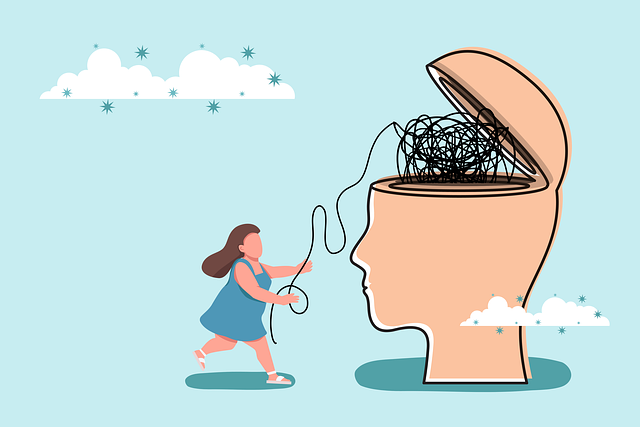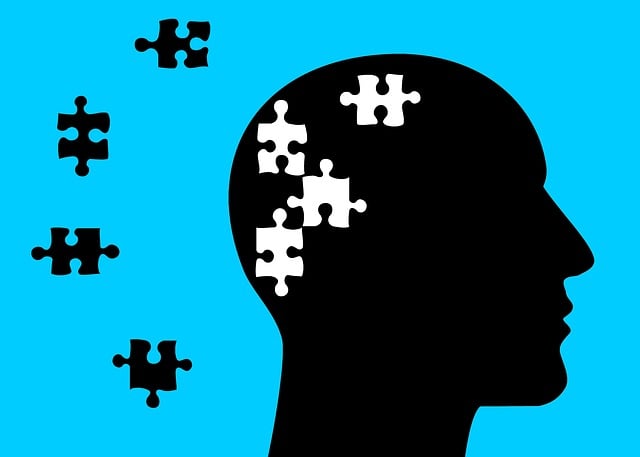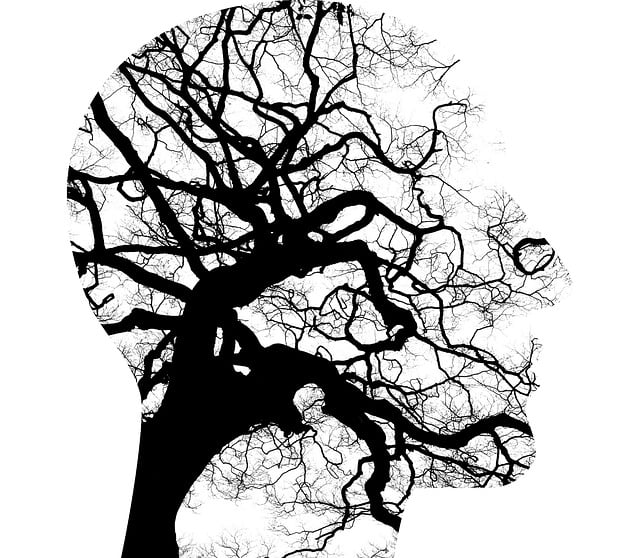Cultural sensitivity is paramount in Longmont Workplace Issues and Job Stress Therapy, where therapists must recognize, respect, and adapt therapeutic approaches to diverse cultural backgrounds. By integrating tailored strategies like mindfulness, based on Eastern philosophies, and encouraging self-care practices, mental health professionals create safe spaces fostering open communication and trust. This culturally competent care addresses unique workplace stress challenges faced by Longmont residents, enhancing therapy outcomes.
In today’s diverse society, cultural sensitivity in mental healthcare is paramount. Understanding the impact of cultural differences on therapy sessions can significantly enhance treatment outcomes. This article explores key aspects such as recognizing Longmont Workplace Issues—a unique perspective on cultural dynamics—and implementing strategies for culturally competent care. By emphasizing cultural awareness, we can enhance job stress therapy, ensuring effective and inclusive support for all clients, regardless of their background.
- Understanding Cultural Sensitivity in Mental Healthcare
- The Impact of Cultural Differences on Therapy Sessions
- Longmont Workplace Issues: A Unique Perspective
- Strategies for Providing Culturally Competent Care
- Enhancing Job Stress Therapy Through Cultural Awareness
Understanding Cultural Sensitivity in Mental Healthcare

Cultural sensitivity is a cornerstone in mental healthcare practice, especially when addressing Longmont Workplace Issues and Job Stress Therapy. It involves recognizing and appreciating the diverse cultural backgrounds and beliefs of clients while tailoring therapeutic approaches to meet their unique needs. This nuanced understanding is crucial for building trust and fostering effective communication.
Effective communication strategies, coupled with compassion cultivation practices, can create a safe space where individuals feel comfortable sharing personal experiences and challenges. By integrating self-care practices within the therapeutic framework, mental health professionals demonstrate empathy and respect for cultural differences, ultimately enhancing the overall healing process.
The Impact of Cultural Differences on Therapy Sessions

In therapy sessions, cultural differences play a pivotal role, shaping the dynamics and outcomes of treatment. When addressing Longmont Workplace Issues and Job Stress Therapy, understanding a client’s cultural background is essential to providing effective care. Every individual carries unique experiences and beliefs that influence their perception of mental health and well-being, which can significantly impact therapy’s effectiveness. For instance, certain cultures may have specific expressions of distress or coping mechanisms not readily apparent to Western therapeutic practices. This cultural lens also extends to expectations around therapy itself—some communities prefer holistic approaches like Mindfulness Meditation, while others might lean towards traditional talk therapies.
Sensitizing therapists to these nuances is crucial for fostering an inclusive environment. This awareness can help professionals tailor their methods, ensuring that every client feels heard and respected. By incorporating insights from diverse cultural contexts, therapy sessions can become more engaging and successful. For example, integrating elements from public Awareness Campaigns Development or creating Mental Wellness Podcast Series Production targeted at specific cultural groups can bridge gaps in understanding and promote better mental health outcomes within these communities.
Longmont Workplace Issues: A Unique Perspective

In the diverse landscape of mental healthcare, understanding and addressing Longmont workplace issues is a unique challenge that requires tailored strategies. The high-stress nature of this field, coupled with cultural nuances, can significantly impact both practitioners and clients. For instance, in a bustling community like Longmont, where folks may face varied pressures, including work-life balance issues, the demand for mental health services is profound. This presents an opportunity to integrate job stress therapy as a vital component of overall wellness.
By acknowledging the unique Longmont workplace issues, mental healthcare providers can cultivate a more inclusive and supportive environment. Implementing emotional regulation techniques, such as mindfulness practices, can help both clients and practitioners manage stress effectively. Moreover, encouraging compassion cultivation practices within the workplace can foster a sense of belonging and reduce burnout, ensuring that mental health professionals in Longmont remain engaged and dedicated to their crucial role.
Strategies for Providing Culturally Competent Care

Mental healthcare practitioners must adopt a culturally sensitive approach to provide effective treatment, especially when addressing Longmont workplace issues and job stress therapy. This involves recognizing and respecting the diverse cultural backgrounds, beliefs, and values of their clients. One strategy is to actively listen and engage with patients, allowing them to express themselves freely and share their unique perspectives. By creating a safe and non-judgmental environment, therapists encourage open communication, fostering trust and understanding.
Additionally, integrating self-esteem improvement techniques tailored to individual cultures can be powerful. This might include incorporating cultural traditions or values into therapy sessions, helping clients feel more at ease and encouraging them to explore their identity. For instance, mindfulness practices inspired by Eastern philosophies could benefit patients dealing with anxiety relief while respecting their spiritual beliefs. Effective culturally competent care also involves regular risk assessment for mental health professionals, ensuring they are prepared to navigate complex cultural dynamics and provide the best support for every patient.
Enhancing Job Stress Therapy Through Cultural Awareness

In the realm of mental healthcare, cultural sensitivity is a game-changer, especially when addressing issues like Longmont Workplace Issues and Job Stress Therapy. By integrating cultural awareness into therapeutic practices, therapists can offer more effective support to clients from diverse backgrounds. This approach goes beyond simply treating symptoms; it involves understanding the unique mindsets, beliefs, and experiences that shape individuals’ interactions with stress in the workplace. For instance, what may be considered a healthy coping mechanism in one culture could be perceived differently in another, influencing how individuals express and manage anxiety relief or depression prevention strategies.
Cultural competency allows therapists to apply Mind Over Matter principles, enabling clients to challenge negative thoughts and develop resilience. This tailored approach ensures that Longmont residents facing job-related stress receive personalized care. By recognizing and respecting cultural variations, mental health professionals can create a safe space, fostering open communication and encouraging clients to share their perspectives freely. Such an inclusive environment facilitates deeper exploration of workplace issues, ultimately leading to more successful outcomes in managing and preventing depression and anxiety relief for all individuals served.
Cultural sensitivity is an indispensable aspect of modern mental healthcare, particularly when addressing diverse populations. As evidenced by Longmont workplace issues, cultural differences significantly shape therapy sessions, requiring practitioners to adapt their approaches. By integrating strategies for culturally competent care and enhancing job stress therapy through awareness, mental health professionals can provide more effective support tailored to each client’s unique background. This inclusive practice not only improves therapeutic outcomes but also fosters a more understanding and empathetic healthcare environment.











